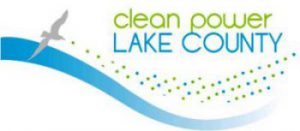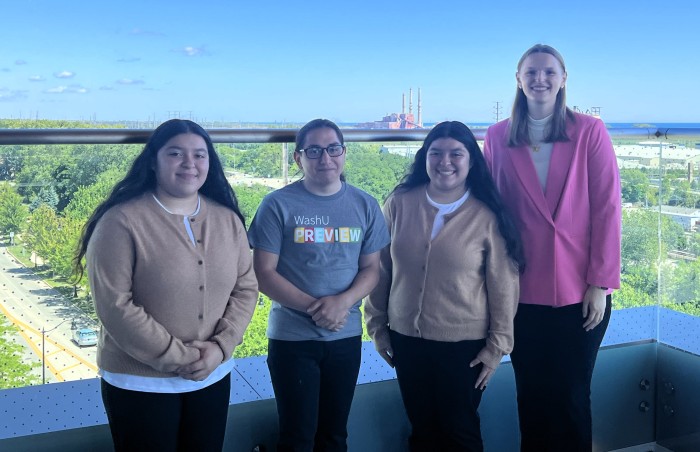Waukegan has always been a place of industry and a home for immigrants. Sadly, many industries have placed profits over people, abandoned the community when profits shrank, and left a deadly legacy of toxic pollution. This is the very definition of environmental injustice.
Clean Power Lake County (CPLC) exists because environmental injustice exists in our community. CPLC exists to change this reality! And as our 2023 milestones show, change is happening.
January
January 31: State Rep. Rita Mayfield and 9 other state representatives introduced legislation (House Bill 1608) requiring that all coal ash be removed from sites bordering Lake Michigan. Toxic waste from the Waukegan Generating Station on the lakefront has contaminated groundwater for more than 10 years.
February
February 3: The Biden administration said it will consider closing a loophole that exempts over half a billion tons of toxic coal ash from federal oversight. The announcement came after CPLC and other public interest groups—represented by Earthjustice—agreed to settle a suit with the U.S. Environmental Protection Agency (EPA).
February 6: CPLC issued a statement opposing the proposed sale of 52 acres of public Lake County Forest Preserves land to the Waukegan Port District, which would allow for construction of a new 7,000-foot runway at Waukegan National Airport.
March
March 7: CPLC co-chair Eddie Flores co-hosted a virtual watch party for “No Climate. No Equity. No Deal.” during the One Earth Film Festival. The film follows the grassroots movements that led to the passage of Illinois’ Climate and Equitable Jobs Act.
March 11: In a panel discussion on “Chicago Tonight-Latino Voices,” CPLC co-chair Dulce Ortiz said Cook County’s extreme smog pollution contributes to air quality problems in Lake County. These disproportionately impact Latino communities.
March 15: WTTW’s “Chicago Tonight” highlighted the scourge of coal ash pollution at the Waukegan coal plant. State Rep. Rita Mayfield and CPLC’s Dulce Ortiz continue to lead the fight for full clean-up of the Waukegan lakefront.
March 20: Congressman Brad Schneider and Mayor Ann Taylor celebrated federal funding for a fleet of new electric PACE buses in Waukegan. The transit agency made the North Division in Waukegan its first Zero Emission Facility in response to a strong campaign led by CPLC.
April
April 11: The EPA announced two actions to update regulations of carcinogenic emissions from ethylene oxide (EtO) commercial sterilization facilities: 1) a proposed rule requiring sterilizer facilities to reduce emissions by installing control technology; and 2) a proposed interim registration review decision based on findings that registered uses of EtO present up to a 1 in 10 lifetime cancer risk for workers inside sterilization facilities.
April 15: Our spring 2023 interns led CPLC’s first post-pandemic community outreach: a table at the Green Living Fair at College of Lake County’s Grayslake campus. Andres Fuentes Teba, Maurico Calderon, and Maite Olivera—all students at Lake Forest College—collected petitions opposing the Waukegan airport expansion and answered questions about Illinois’ pending coal ash bill.
April 19: CPLC’s Celeste Flores represented vulnerable environmental justice communities in northeast Illinois during Environmental Lobby Day rally in Springfield.
May
May 17: In a major win for Waukegan and other communities near coal plants, the EPA issued a draft rule to extend federal monitoring, closure, and cleanup requirements to hundreds of previously excluded older coal ash landfills, legacy ponds, and fill sites.
June
June 13: CPLC co-chair Eddie Flores and members of other environmental groups joined Earthjustice in the nation’s capital to advocate for stronger protections against ethylene oxide emissions.
June 23: Brushwood Center at Ryerson Woods launched a new report, Health, Equity, and Nature: A Changing Climate in Lake County, Illinois, identifying Waukegan as the most overburdened community in the area.
June 27: During the EPA Region 5 Coal Ash Community Hearing in Waukegan, activists from CPLC, Little Village Environmental Justice Organization, and Sierra Club called on EPA to hold NRG Energy accountable for coal ash removal and to enforce a timeline for the cleanup.
June 28: During the only public EPA coal ash hearing held in the country, CPLC members and interns urged EPA to finalize its proposed coal ash rule and close the remaining loopholes that allow coal ash pollution to continue.
July
July 21: Gov. J.B. Pritzker announced $38 million for clean energy workforce hubs. The network of 13 community-based hubs—including one in Waukegan—will offer training, job placement services, barrier reduction support and more. Hubs represent the largest training component of the Climate and Equitable Jobs Act (CEJA).
August
August 12: CPLC’s summer interns capped off their experience with presentations outlining ways industries affect our community’s residents, air, water, land, and health. The public program was held in the Eleanor Murkey Community Center at the College of Lake County’s Lakeshore campus.
August 24: A U.S. District Court signed a consent decree ordering the EPA to finalize much-needed updates to ethylene oxide regulations by March 1, 2024. This comes after years of advocacy by communities across the country, including a lawsuit filed by Earthjustice on behalf of CPLC and other environmental and justice organizations.
September
September 29: During its Smith Nature Symposium Awards Dinner, Brushwood Center at Ryerson Woods introduced CPLC as one of its newest community partners.
October
October 19: In one of three city council meetings about relaxing Waukegan’s Tree Preservation and Landscape Ordinance, CPLC’s Karen Long MacLeod reminded alderpersons that trees are vital for Waukegan: They minimize stormwater runoff, erosion, and flood risks; reduce heating and cooling costs for businesses and residences alike; and filter harmful dust and pollutants from the air we breathe.
November
November 6: CPLC’s Rev. Eileen Shanley-Roberts led about 20 environmental studies students from Lake Forest College on a “toxic tour” of Waukegan’s environmental justice sites.
December
December 11: The Waukegan City Council voted to table further discussion of proposed changes to the Tree Preservation and Landscaping ordinance until the Unified Development Ordinance—which will combine tree preservation and landscape, zoning, subdivision, and sign codes into one comprehensive law—is available for review in the spring.
Priorities for 2024
We are excited about new opportunities to advance climate justice in Waukegan. We will:
- Continue pursuing a just transition for the Waukegan coal plant. This means ensuring that all coal ash is removed from the Waukegan Generating Station site. It should not be allowed to contaminate Lake Michigan, the source of drinking water for 6 million people in four states.
- Working to ensure workforce training programs under the Climate and Equitable Jobs Act (CEJA) increase access for marginalized communities and include community-driven approaches that lead to jobs, capital to complete projects, and more.
- Supporting federal action to protect our community from emissions of ethylene oxide and other harmful chemicals.
If you’d like to support CPLC’s work, please make a gift today.
“Progress lies not in enhancing what is, but in advancing toward what will be.” — Kahlil Gibran









